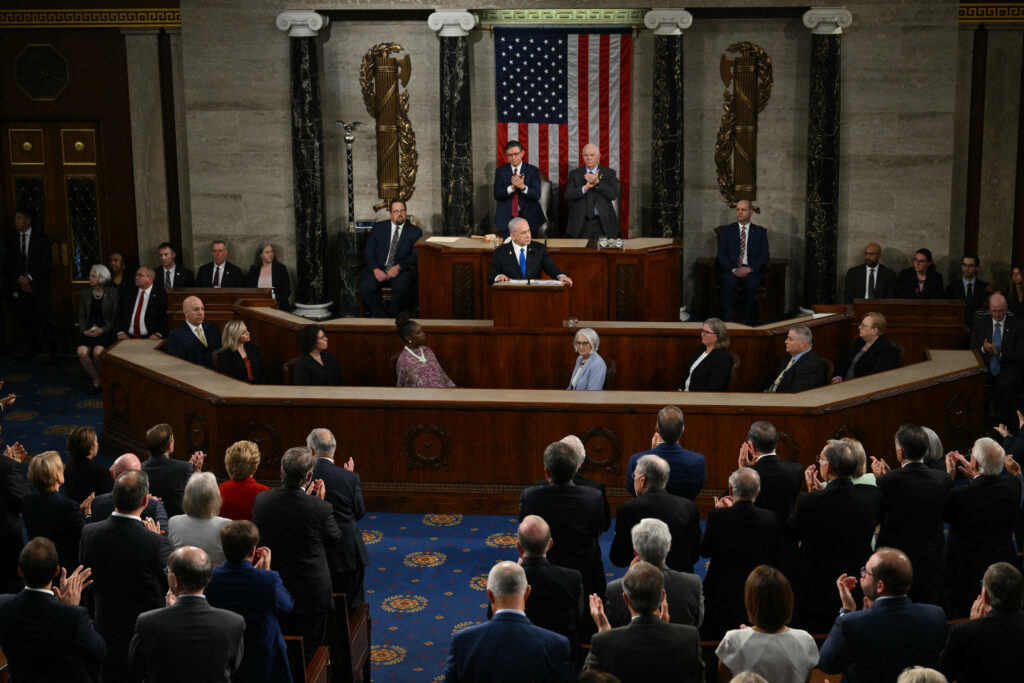Middle East ‘Remains Central to US Policy, and Washington Should Take Note’
- - October 14, 2022

By Misha Monteiro-Benson
The end of oil is on the horizon – perhaps in as little as 50 years – but it will not go quietly. Instead, the journey towards a post-hydrocarbon future will return the Middle East to a central position in the United States’ foreign policy, particularly in the great power competition with China.
Despite this reality, American policymakers have shown growing frustration and impatience with Gulf countries, and a tendency to view Asia as the only arena for the competition with China, said Dr Jon Alterman, Zbigniew Brzezinski Chair in Global Security and Geostrategy, Center for Strategic and International Studies (CSIS), at a 4 October webinar hosted by the Arab Gulf States Institute in Washington (AGSIW).
By contrast, Dr Alterman said, China is more aware of the Middle East’s growing centrality, and has taken steps to be more pro-active in dealing with this reality, including by shoring up economic and technological links with the region.
In his opening remarks at the webinar, Dr Alterman touched on oil’s strategic importance in the medium term, which is being heightened by the Russian invasion of Ukraine and the knock-on effects for global markets. He added that shrinking investments, and the opening of fewer new oil fields, will cause supply to decline more quickly than demand.
These factors will drive up the share of global oil production towards the Middle East, which has the most extensive and environmentally-friendly oil production in relative terms. Dr Alterman added that Gulf countries “have a strategic interest in extending the oil age by moderating prices enough to slow the adoption of alternatives”.
He pointed out that while US policymakers are shifting their focus away from the Middle East and pivoting towards Asia to compete with China, the growing centrality of the Middle East centrality is not lost on the Chinese. Beijing, he said, is keen to fill the potential void left by the US in the Middle East, not in a like-for-like basis, but on its own terms.
China’s interest in the Middle East, Dr Alterman said, is a result of a self-awareness of its vulnerability due to its reliance on energy from the region, and its current incapability to directly compete with the US in terms of conventional military strength. American military domination of sea lanes of communication in the region, therefore, makes China’s position increasingly untenable as competition between the two superpowers intensifies.
China’s strategy is to strengthen ties with the region in the medium term, while actively looking to “exit the oil age” to reduce its strategic vulnerability. The tools it employs include technology, such as Huawei’s 5G push in the region. The Chinese approach of focusing on economic investments without strings attached – hectoring on democracy and human rights, for instance – also appeals to the Gulf monarchies.
This approach is the opposite of that in Washington, where the conventional wisdom is that the Middle East represents “yesterday’s battle”, and that competition with China requires exclusive focus on Asia, Dr Alterman said. This rush for the exits, he added, is “wrongheaded”. He also expressed concern that Middle Eastern and Asian scholars are not talking about the interconnectivity of the two regions to US policy in the medium term, comparing this indifference to “a waiter saying it’s not my table”.
The webinar, which was moderated by Dr Hussein Ibish, Senior Resident Scholar at AGSIW, also touched on how the oil-producing Gulf states could seize the opportunity presented by a final period of fiscal plenty to put their economies and society on a post-hydrocarbon footing. Thus far, Dr Alterman said, the countries have squandered the opportunity because of a lack of political will and social incentives, preferring instead to spend “like a drunken sailor on bread and circuses”.
The attitudes of the Gulf populations are partly to blame, he said. Fed by years of subsidies, they have become complacent and unprepared for the demands of a modern economy. This has led to a vicious circle: Gulf citizens expect ever greater handouts in exchange for steering clear of political matters, and their leaders continue to spend for fear of upending the social contract and sparking chaos.
During a question and answer that followed the webinar, Dr Alterman was asked about the elephant in the room: India, which recently joined what has been dubbed a “mini Quad” with the US, Israel, and the United Arab Emirates. According to some observers, this grouping is aimed at countering China’s growing influence in the region.
However, Dr Alterman said that he has been following India for nearly a decade, and that it lacked the will or capability to assert itself in any significant way. He added that India was much more focused on its domestic policies, and “hasn’t resolved the question about whether its real challenges lie to its east or to its west”.
Image Caption: Sunset behind an oil rig. Image: Nico Franz / Pixabay
About the Author
Misha Monteiro-Benson is a Research Assistant at the Middle East Institute, NUS.
More in This Series
More in This Series
- Jean-Loup Samaan
- - July 11, 2024
- Aisha Al-Sarihi, Ehsan Rasoulinezhad, Jinseok Sung
- - June 20, 2024








